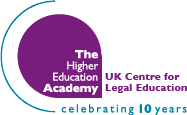What the Whitehall studies teach us about learning
 contributors | abstract | biographies
contributors | abstract | biographies
Contributors
Scott Taylor (University of St. Thomas (USA))
Intended format
Paper presentation
Abstract
The Whitehall studies demonstrated an association between social status and health. Low social status determined by civil service grade contributes substantially to poor health and early mortality, after controlling for other risk factors. Low social status heightens stress, which in turn triggers a biological response that contributes to poor health.
Robert Sapolsky’s study of baboons replicates the findings of the Whitehall studies. Sapolsky establishes that the primary source of stress is lack of control, which explains why low status individuals experience greater amounts of stress. Sapolsky also connects excessive stress with diminished brain functioning. Excessive stress triggers a negative neuro-biological response.
Legal education, like much of higher education, depends on the kinds of hierarchies seen in the Whitehall studies and Sapolsky’s studies of baboons. These hierarchies produce substantial stress for those students who find themselves within the lower social strata of specific student communities. This stress has an adverse neuro-biological effect that impedes learning.
Can legal education develop a learning environment that reduces or eliminates continuous stress? Can legal education, without reducing stress, develop methodologies that counteract the effects of stress that flow from low social status? Finally, can students, through self-help, deal with stress to enhance their engagement and learning?
This paper will answer these questions and fit within the “better teaching” and “flexibility of learning” topics of Learning in Law Annual Conference 2011. Moreover, the paper will propose actual measures that increase student academic success.
Short biographies of panel members
Scott Taylor’s academic background is wide ranging and includes articles on the taxation of captive insurance, integration of the corporate income tax, taxation in Indian Country, taxation of Indian gaming, innovations in legal education, harmonization of consumption taxes, and law and technology. Before joining the University of St. Thomas School of Law in 2002, Taylor taught at the University of New Mexico School of Law for 20 years, also serving as a visiting professor at New York Law School, the University of California at Davis, Lewis and Clark, and Seton Hall.
Last Modified: 10 December 2010



Comments
There are no comments at this time